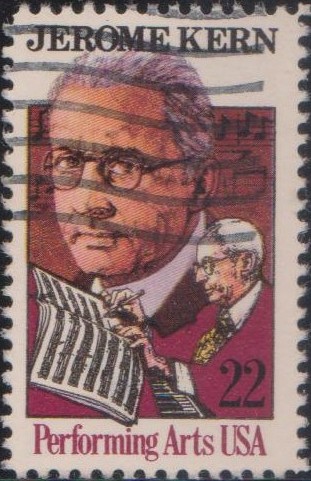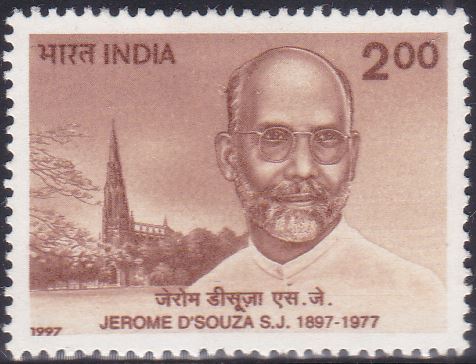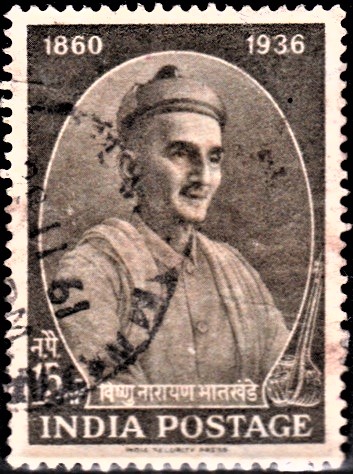
Jerome Kern
A commemorative postage stamp on the Birth Centenary of the Composer Jerome Kern :
 Issued by United States of America
Issued by United States of America
Issued on Jan 23, 1985
Design : Jim Sharpe of Westport, Connecticut designed the Jerome Kern stamp, part of the Performing Arts series. Mr. Sharpe also designed the other stamps in the series, which began in 1978.
Type : Stamp, Postal Used
Denomination : 22 cents
Name : Jerome David Kern
Born on Jan 27, 1885 at Sutton Place, New York City, New York, United States
Died on Nov 11, 1945 at Manhattan, New York City, New York, United States
About :
- Forty years after his death, the melodies of Jerome David Kern (1885-1945) remain as popular as ever. An enormously gifted and innovative composer, Kern changed the course of American musical comedy. His 1927 work Show Boat, with book and lyrics by Oscar Hammerstein II, was the first musical play produced in the United States that had a serious plot and was drawn from a literary source. His songs are uniquely American, with a natural flow of rhythm and melodies having a folk-song quality.
- A native of New York City, Kern began taking piano lessons from his mother at the age of five. After high school, he went on to study piano and harmony at the New York College of Music and in Heidelberg, Germany. He gained his first theatrical experience in London, working for American producer Charles Frohman.
- By 1911, Kern had returned to New York and was working on his own shows. The first all-Kern Broadway musical, The Red Petticoat, was produced the following year. He then began to focus on writing musicals about modern people in real situations, with songs being an integral part of the action. This new concept led to a series of Broadway hits, from Very Good, Eddie (1915) to Roberta (1933). It also produced a long list of song classics, including “They Didn’t Believe Me”, “The Song Is You”, “Smoke Gets in Your Eyes”, “All the Things You Are” and “Ol’ Man River”.
- Kern’s inventiveness took many forms. Show Boat demonstrated how music, lyrics and book could be successfully integrated. It also popularized the “touch song” (sad love ballad) and, for the first time, portrayed a black man as a dignified, tragic character. Kern wrote masterfully for a variety of dance forms and also composed wistful, poignant ballads. Other composers, from George Gershwin to Richard Rodgers, were greatly influenced by his work.
- In 1933, Kern moved to Hollywood, where he became one of the most successful composers of film music. The year following his death, his own life was made into a film biography, Till the Clouds Roll By.
Subscribe
Login
0 Comments
Oldest







